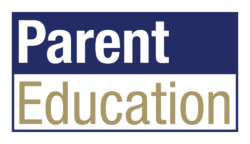 What Is Responsibility?
What Is Responsibility?
One of the first stories our new Kindergarteners hear is The Little Red Hen. In the tale, the Little Red Hen, the cat, the dog, and the mouse all live together, but the Little Red Hen does all the chores herself. She cooks the meals, washes the dishes, makes the beds, sweeps the floor, washes the windows, and mends the clothes. One day, the Little Red Hen decides to plant some wheat. After that the wheat must be cut, then taken to the mill, and finally baked into a cake. The Little Red Hen asks the others to help with each task, but each time they refuse. Very soon the cat, the dog, and the mouse learn that when we do not act responsibly and contribute, the rewards in life are fewer.
Responsibility is the virtue of fulfilling your obligations.
At Great Hearts Irving, we speak often with our students about the virtue of responsibility. Our scholars are expected to obey directions cheerfully and quickly, complete their own work, participate in lessons, and bring homework back to school. Students should use the bathroom responsibly by flushing, washing hands, remembering it is not a place to play, and not dawdling. Students are asked to walk through the halls silently. Students are to show good manners when eating snacks and lunch and to help clean up afterwards. Each day, students are responsible for being in proper uniform, maintaining a neat and tidy appearance with shirts tucked, belts buckled, and shoes tied. In the early grades, our students need frequent reminders, but as they get older, they grow in their ability to take personal responsibility for meeting expectations as well as their own learning.
When we accept that we are responsible for our actions, when mistakes inevitably happen, we have the opportunity to offer amends instead of just excuses. By taking responsibility, others learn that they can trust us. And this very trust and accountability—rooted in the virtue of responsibility—is the foundation upon which all healthy human relationships are built.
Examples of Responsibility from the Great Hearts Curriculum
- In First Grade, during their History unit on Ancient Mesopotamia, scholars learn about the Code of Hammurabi and how it teaches “an eye for an eye, and a tooth for a tooth.” The Babylonians had to accept the consequences of their actions.
- In Third Grade, students read Little House on the Prairie. One day when Pa Ingalls goes hunting, Pa tells Mary and Laura that Jack, the family dog, must be chained up “to guard the place.” While Pa is gone and Mary and Laura are outside keeping Jack company, two Indians happen by and enter the house. While the Indians mean no harm, Laura has never seen Indians before and is afraid. Laura contemplates letting Jack go to try and scare them away, but remembers Pa’s instruction to keep Jack tied up. The Indians leave peacefully. After Pa returns, Laura tells Pa that she thought about untying Jack. In a “dreadful voice,” Pa asks, “Do you know what would have happened if you had turned Jack loose? …He would have bitten those Indians. Then there would have been trouble. Bad trouble.” Had Laura not shown the virtue of responsibility by obeying her father, she would have endangered the very lives of her family.
- In The Trumpet of the Swan, Louis the Swan’s father, the Cob, not knowing any better, smashes the front window of a store and steals a trumpet for his son. Louis spends the rest of the book working to earn enough money to pay the store back for the cost of the trumpet and the damage his father had inadvertently caused.
One of the key principles of the Love and Logic® approach to discipline is training responsibility by guiding children to own and solve their problems. If we never give our children any freedom, or, on the other hand, never set any limits for our children and then bail them out every time they make a mistake, all we are teaching them is how to be dependent on others. Sign up for the Love and Logic® Insider’s Club and receive free weekly tips on this and other vital parenting topics. Love and Logic Institute also has numerous audios available for purchase, such as “Helicopters, Drill Sergeants & Consultants: Parenting Styles and the Messages They Send.”